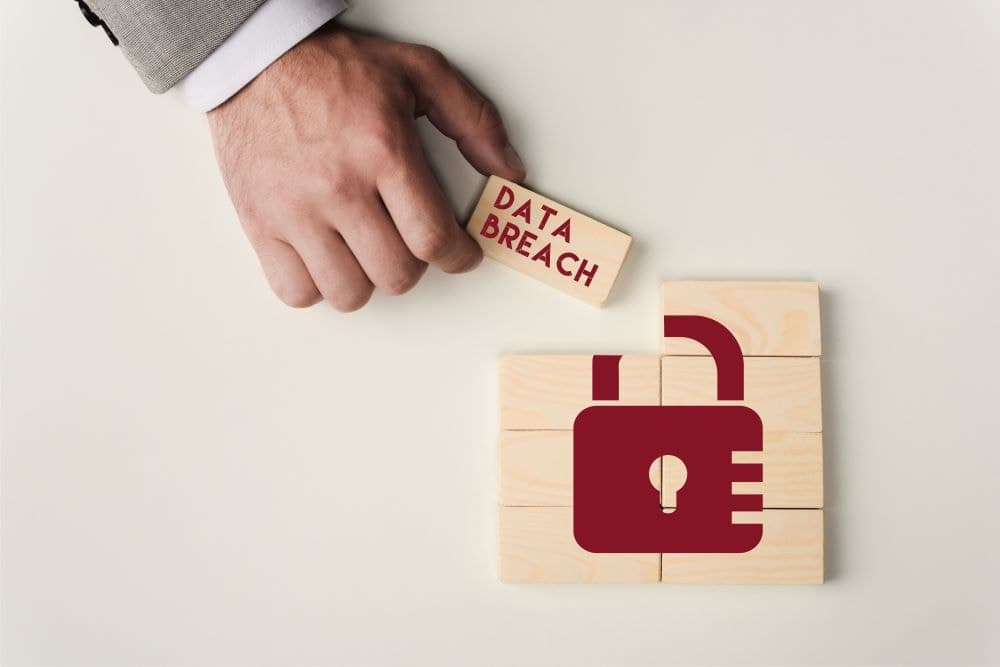
In today’s digital world, schools hold vast amounts of sensitive personal data, from student records to staff financial details. If a school fails to protect this information and it’s exposed, the impact on your life can be devastating. You may find yourself wondering, “Can I sue a school for a data breach?” The answer depends on the nature of the breach, its consequences, and the school’s responsibilities under the law.
This guide will walk you through school data breach claims, including how to protect your rights and what to do if your personal data or your child’s personal data is compromised.
What Is a Data Breach in Schools?
A data breach happens when personal or sensitive information is accessed, shared, or stolen without permission. Schools, as data controllers, handle vast amounts of sensitive information, making them prime targets for cyberattacks or victims of internal errors.
Examples of School Data Breaches
Child’s personal data: Names, addresses, grades, or disciplinary records.
Parent or guardian information: Bank details, medical records, and social security numbers.
Staff details: Employment contracts, payroll information, and bank account numbers.
Sensitive information: Social services reports, health records, or psychological assessments.
Breaches can occur due to poor cybersecurity, hacking attempts, or negligence, such as emailing confidential documents to the wrong person.
Can You Sue a School for a Data Breach?
Yes, under the Data Protection Act and GDPR, schools must ensure they adequately protect personal data. When they fail, you can pursue a data breach compensation claim.
To sue a school for a data breach, you need to meet certain conditions:
Proof of Breach
Schools must comply with data protection laws. If they lacked robust procedures or allowed personal data to be exposed through negligence, you can hold them accountable.Material or Non-Material Damage
Material damage includes financial losses such as identity theft or unauthorized transactions.
Non-material damage covers emotional distress, psychological injury, or post-traumatic stress disordercaused by the breach.
Eligibility Criteria
Your case must demonstrate that the breach caused you measurable harm, such as financial losses or significant emotional distress.
Key Protections
Schools must safeguard confidential information and sensitive data.
Victims of breaches, such as data breach cases, can seek compensation for material damage or psychological harm.
Institutions implement significant improvements to prevent future breaches.
1. Children’s Online Privacy Protection Act (COPPA)
In the U.S., COPPA ensures the protection of children’s online data. While primarily focused on digital platforms, it sets a precedent for safeguarding minors’ sensitive information, including in educational institutions.
2. Family Educational Rights and Privacy Act (FERPA)
FERPA specifically addresses the protection of students’ educational records. Schools must ensure these records are not improperly disclosed or accessed as violations can lead to federal penalties.
Steps to Successfully Sue a School
Suing an educational institute can be complicated, here’s what you need to do:
1. Identify the Breach
When you suspect a data breach, verify the scope and type of information compromised. Check for:
Notifications from the school.
Evidence of fraud or identity theft.
Emails or communications acknowledging the breach.
2. Gather Evidence
Compile relevant documentation to support your claim, including:
Bank statements or suspicious transactions.
Copies of communications with the school.
Medical records documenting psychological harm caused by the breach.
3. Report to Authorities
Inform the Information Commissioner’s Office (ICO) about the breach. While the ICO does not award compensation, its findings can strengthen your valid claim.
4. Consult a Data Breach Lawyer
A data breach lawyer can assess your case and guide you through the claims process. Many lawyers work on a success fee basis, meaning you only pay if they secure compensation for you.
5. File Your Claim
Once your lawyer determines your case is strong, they’ll file the school data breach compensation claim. They will ensure there’s no undue delay in pursuing your case.
What Can You Claim?
Victims of a school data breach may receive compensation for:
Financial Losses: Costs to recover stolen funds, monitor your credit report, or replace compromised bank details.
Emotional Distress: Anxiety, psychological harm, or post-traumatic stress disorder caused by the breach.
Identity Fraud: Expenses related to combating fraud or reclaiming stolen identity.
Compensation varies but can range from small amounts for minor breaches to tens of thousands of dollars for significant harm.
What Are Schools Required to Do?
Schools must follow data protection laws to safeguard personal data. This includes:
Implementing robust procedures to prevent breaches.
Training staff on proper data handling.
Reporting breaches to the ICO and affected individuals in a timely manner.
If a school fails to meet these standards, victims have a right to seek justice.
FAQ
What is a data breach in schools?
A data breach in schools happens when confidential information, like a student’s records or a parent’s financial information, is exposed due to a security incident. Breaches often involve unauthorized access, sharing, or theft of sensitive details.
Can I claim compensation for a school data breach?
Yes, if you or your child’s personal details were compromised, you may be eligible to claim compensation. Compensation can cover material damage (financial losses) and non-material damage (emotional distress or psychological harm).
What should I do if my personal details are found on the dark web?
Immediately take action to protect yourself.
Monitor your financial information and accounts for suspicious activity.
Contact your bank to secure your bank details.
Inform the Information Commissioner’s Office (ICO).
Seek guidance from advisors today, such as legal professionals or cybersecurity experts.
Who is considered a data subject in school data breach cases?
A data subject refers to the individual whose personal information was affected by the breach. This could be a student, a parent, or even a staff member.
Can I sue a school for a data breach and exposing personal data?
Yes, under the Data Protection Act, schools have a legal duty to protect your child’s personal data. If their negligence led to a breach, you can seek legal action to recover damages for material damage, emotional distress, or psychological harm caused.
What damages can I claim in school data breach cases?
You can claim for:
Material damage, such as identity theft or financial fraud.
Non-material damage, like anxiety, stress, or severe psychiatric damage.
Both are valid grounds for compensation if the breach caused harm.
What qualifies as wrongful conduct by a school in a data breach?
Wrongful conduct includes failing to implement proper security measures, not notifying affected individuals promptly, or sharing sensitive data with the wrong person.
How does a security incident lead to a school data breach claim?
A security incident, such as hacking or accidental exposure of confidential information, can compromise personal details like names, home addresses, and financial records. If this breach causes harm, it becomes the basis for a school data breach claim.
What should I do if I suspect a breach at my child’s school?
Report the issue to the school’s data controller immediately.
Document any significant improvement or changes in your child’s situation.
Notify the ICO about the breach.
Seek free advice from a legal expert to assess your options.
Can a school’s failure to protect personal data lead to legal action?
Yes, if the school failed to meet its obligations under data protection laws, you can hold them accountable for exposing sensitive information relating to you or your child.
How can I prove I suffered psychological harm from a school data breach?
Provide evidence like:
Medical records showing anxiety, depression, or PTSD.
Statements from therapists or counselors.
Documentation linking the breach to your emotional distress.
Can a school data breach affect my credit report?
Yes, if your financial information is stolen and used fraudulently, it can impact your credit report. Monitor your report closely and report unauthorized activity to financial institutions.
What steps can schools take to ensure data privacy?
Schools must implement robust procedures to protect personal data, including:
Regular cybersecurity audits.
Staff training on handling confidential information.
Swift responses to breaches.
Is there a time limit to file a school data breach claim?
Yes, typically you have up to six years to file a compensation claim for data breaches. In cases involving children, this period may extend until they turn 18.
What is the role of a data breach lawyer in such cases?
A data breach lawyer helps:
Assess the validity of your claim.
Navigate the legal process.
Ensure there’s no undue delay in securing compensation.
Can a breach at my child’s school result in identity theft?
Yes, exposed personal details like names, dates of birth, or addresses can lead to identity fraud. This can cause long-term financial and emotional distress.
What is the average payout for a school data breach claim?
The amount depends on the impact of the breach. Minor cases may result in small settlements, while breaches causing severe psychiatric damage or financial harm could yield tens of thousands in compensation.
Can I sue if a school doesn’t notify me of a breach?
Yes, schools must inform affected individuals of breaches without undue delay. Failing to do so can strengthen your valid claim for compensation.
Final Thoughts
If you or your child has suffered due to a school data breach, don’t hesitate to act. Whether the breach caused financial losses, emotional distress, or compromised your private information, you have rights.
At Bourassa Law Group, we understand the challenges faced by data breach victims. Contact us today to schedule a free consultation and start your journey toward accountability and securing the compensation you deserve.





